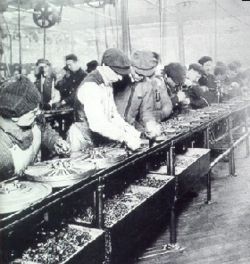Last night, as I DM'd my 2e campaign, I decided that I was going to make "passive" hidden doors rolls myself, as opposed to the players. Elves, for instance, can locate a hidden door on a 1 or a 2 on a d6 just by passing by them. It just made more sense for me to be doing that, so as not to tip off the players.
This segueued into a conversation about the distribution of labor in RPGs. The episode of Community ( you know which one) was referenced. In it, Abed was the DM and he did all the dice rolling. Players announced their actions, and the he made the rolls to see if they were able to complete this action.
This, to me, is the true Old School. It removes all of the number crunching, all of the min/maxing from the game, and it becomes all narrative.
But holy crap how much work is that for the GM. Too much for me, anyways. In addition, it also makes the players more passive participants in the game, as opposed to being actively involved, as they can be when they're determining the fate of their own character.
I tend to roll for NPCs, unless they're henchmen or hirelings, and let my players roll for themselves and any affiliated characters they travel with. Honestly it had never occurred to do it any differently, but now I'm curious - what is the distribution of labor at your table? Does anyone play it Abed's way anymore? Did they ever?
Enquiring Minds Want To Know


I think my players would hate the idea of the DM rolling all the dice. One of the reasons they like to play is to roll dice.
ReplyDeleteI do, however, roll search rolls for them.